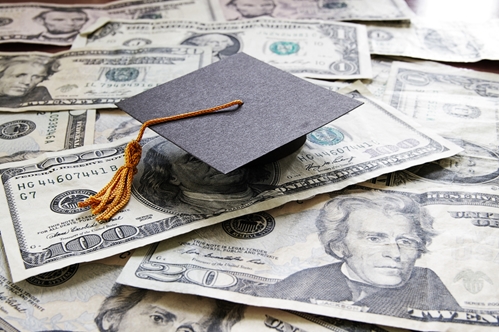
Debt comes in many sizes and forms. For many households, debt typically consists of home mortgages, credit cards and student loans. Every family and individual has varying degrees of debt obligations - some may have very little to pay back in student loans, while others may have hundreds of thousands of dollars to owe after obtaining a master's degree.
Combing every piece of debt and comparing your income may leave you feeling a bit overwhelmed. You want to still enjoy everything life has to offer and save for the future, but these two aren't possible if your monthly paychecks are all going toward paying off past loans.
It should be noted, however, that not all debt is considered bad. In fact, some of it can actually be good for you.
You should know the distinction between the two types of debt because it can influence any future decisions you may make. While everyone wants to avoid taking on debt, there are situations that call for it. By finding that right balance, you will still be able to make all of your monthly payments while still being able to afford some of life's other perks and necessities.
What is Bad Debt?
Bad debt is defined as when you take out money or credit to purchase items you want, rather than need. Over time, these purchases will depreciate in value, Money Crashers stated [1]. In some instances, your wants turn into needs, so you want to make sure you know how that debt is affecting you.
Overused credit cards will typically belong in the bad debt category. The average American household carries approximately $10,000 in in credit card debt on a monthly basis. Swiping a plastic card and using credit often entices many people to buy items they simply cannot afford if they were to use cash instead.
Credit card debt hurts you when you fail to pay back your balance in full every month. What was a $50 purchase may end up actually costing you $100 because of interest. To avoid this bad debt, only use credit cards if you plan to pay them off each month or in emergencies.
Bad debt can also come from poor decision making, such as withdrawing funds from your 401(k) before you're allowed to. You will be required to pay back the borrowed money within five years - unless you're using it to buy a house - and if you don't you'll be fined even further.
Only go on vacations when you can afford them. Save up every month instead of paying for it with a credit card. While you may think you need a vacation, the expense can be classified as more of a want.
In some instances, economic hardships are unavoidable. Whatever you do, avoid payday loans. While they're easy to obtain, they come with eye-opening high interest rates and these are often the worst forms of bad debt you could have.
What is Good Debt?
Good debt is defined as money borrowed to pay for items that appreciate in value, and ones you absolutely need.
A mortgage is perhaps the most well-known form of good debt. This large loan will help you finally become a homeowner and raise your family in a safe area, but a house can also help you build your retirement safety net. Owning a house means home mortgage insurance is tax deductible. However, you have to be careful about the amount of money you borrow and house you're buying because you don't want to buy anything you can't afford.
If you're a new or existing small-business owner, you will likely need to borrow money to help start or expand. This money is needed to pay for equipment, hire more workers and more.
Finally, student debt is good debt, and it is one today's generation know all too well. Due to a variety of factors, the cost of college tuition has dramatically increased, and added with many employers wanting to hire college graduates, a degree becomes necessary.
According to Time Money, 2/3 of college graduates finished school with student loan debt [2]. Among them, the average amount owed was approximately $35,000.
While student debt is technically good because the education you receive will help you advance your career, you still want to be careful with how much you take out. Anything you can do to lessen the burden after graduation will greatly help.
Debt is not always bad. A mortgage is perhaps one of the most favorable forms of debt you can receive. As a consumer, it's important you balance your financial obligations by ideally staying away from forms of bad debt.
If you do owe money, you'll then want to develop a plan to ensure you pay everything back and never miss a payment.
Sources:
[1]. What Is Good Debt vs. Bad Debt
[2]. Why the Student Loan Crisis Is Even Worse Than People Think